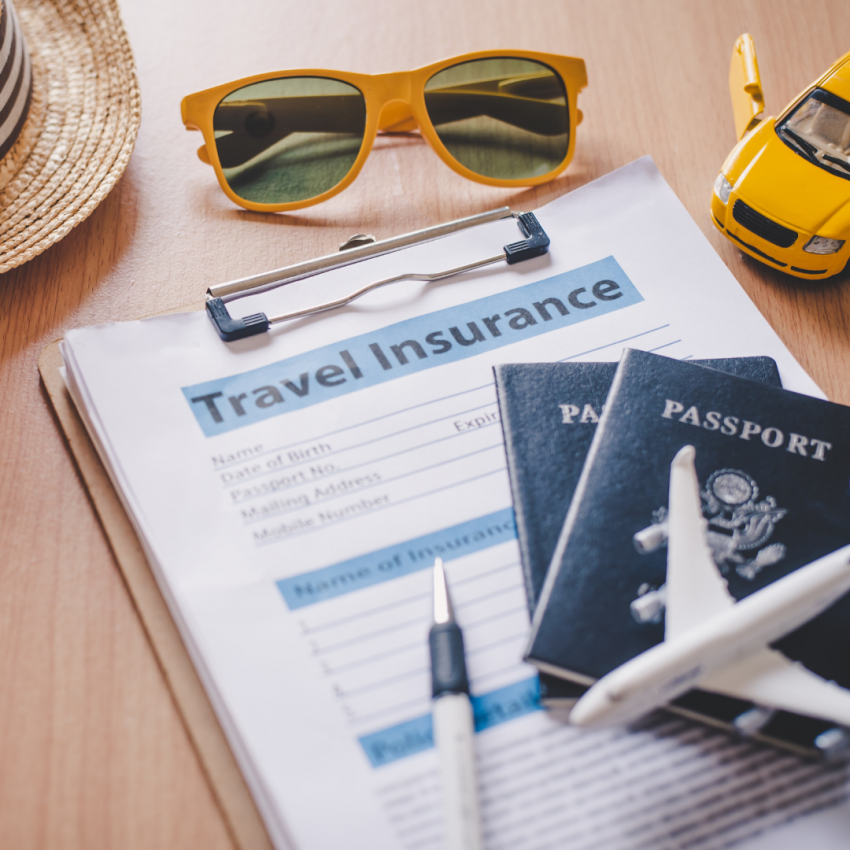When you’re planning a trip, it’s easy to get caught up in the excitement and overlook important details like buying travel insurance, but if something goes wrong on your trip, travel insurance can be a lifesaver. There are many different types of travel insurance plans available, so it’s important to choose one that meets your needs, but in general, travel insurance is there to protect you from financial losses.
If you’re thinking of skipping travel insurance on your next trip, think again. It’s always better to be safe than sorry. Here’s everything you need to know:
What does travel insurance cover?
Insurance companies like one sure offer travel insurance that can cover a variety of different things, from trip cancellation and interruption to missed connections and lost luggage. Items such as clothing, important documents or cash up to a certain amount are covered, so if anything is lost or stolen, you should be able to claim it back. You should also be eligible for reimbursement if your transport abandons you (if they overbooked or if they are over their weight limit), whilst travel insurance will also cover cancelled or double-booked accommodation, and curtailed trips. Just remember, it’s important to choose a plan that meets your needs, so read the fine print to check the details.
What does travel insurance not cover?
Travel insurance does not cover everything. Some common exclusions include pre-existing medical conditions, activities considered to be high-risk, and cancellations due to weather. Some policies may cover pre-existing medical conditions as long as you declare them, but adventure sports like skiing, rock-climbing and white-water rafting are not likely to be covered, so you’ll need to look at extra insurance to cover them. Additionally, expensive items such as designer clothing or laptops are not usually insured, so be sure to read the fine print of your policy to know what’s covered and what’s not.
How much does it cost?
This can depend on a variety of factors. Common factors include your age, your destination, your physical health and the activities you’ll be doing. It’s important to remember that insurance gets more expensive the older you are, with those in their 20s, 30s and 40s enjoying the cheapest rates. Meanwhile, over 65s will pay much more, whilst over 80s have to pay more again. This is mostly down to your expected health and fitness level, with those who are older being more likely to need to make a claim.
Destinations and activities, on the other hand, affect the price by how dangerous they are considered to be. Countries plagued by conflict or unrest, for example, will be much more expensive than peaceful countries. Similarly, activities like scuba-diving will push the cost of your insurance up, so you might want to stick to sunbathing if you’re on a budget.
Do you need insurance for domestic travel?
Again, this can depend on a few factors, but generally speaking, you don’t need insurance for a staycation. Your healthcare should be covered by the system in place in your country, so dangerous activities and age aren’t such an issue if you’re staying close to home. However, you may want to consider insurance if you’re getting a domestic flight, or if you’re staying at a particularly expensive hotel. This way, you’ll be covered if your flight is cancelled, or if your accommodation is double-booked. Luggage can also be lost on a staycation, so insurance can help to cover any missing items.
The bottom line
Ultimately, travel insurance is a must-have for any trip abroad. It can help protect you from financial losses due to trip cancellations, missed connections, lost luggage, and more. There are many different types of travel insurance plans available, so be sure to choose one that meets your needs. If something does go wrong on your trip, don’t forget to contact your travel insurance provider so they can help you through the process. By considering everything above, you should be able to make the right decision for you, giving you the peace of mind you need to have a safe, happy holiday!


